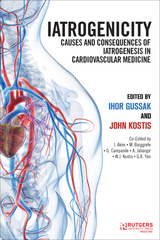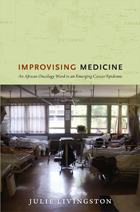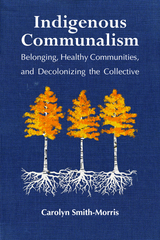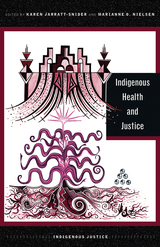11 start with I start with I

Edited by two renowned cardiology experts, Iatrogenicity: Causes and Consequences of Iatrogenesis in Cardiovascular Medicine addresses both the iatrogenicity that arises with cardiovascular interventions, as well as non-cardiovascular interventions that result in adverse consequences on the cardiovascular system. The book aims to achieve three things: to summarize the available information on this topic in a single high-yield volume; to highlight the human and financial cost of iatrogenesis; and to describe and propose potential interventions to ameliorate the effects of iatrogenesis. This accessible book is a practical reference for any practicing physician who sees patients with cardiovascular issues. .

Contributors to this volume examine historical and contemporary visual practices-Chinese health fairs, documentary films produced by the World Health Organization, illness maps, fashions for nurses, and live surgery on the Internet-in order to delve into the political and epidemiological contexts underlying their creation and dissemination.


Most public controversies about the effects of chemicals on human health revolve around the risk of cancer—hardly surprising, considering that it is the second leading cause of death in the United States. People are concerned about the dangers of carcinogens in air, water, and food, and they expect their representatives in government to protect them from such hazards. On the other hand, the economic costs of eliminating every suspected carcinogen from the environment would cause tremendous economic hardship. How should policymakers use science to help strike a balance between the benefits of lowering the risk of cancer and the economic costs of regulation?
In this important book the authors squarely address the complex interaction of science and regulatory policy. They begin by clarifying the scientific issues that are central to regulatory decisions, then explain how and why scientists can honestly disagree about these issues. They demonstrate with two cogent case studies: the heated debates about formaldehyde and benzene, both useful but potentially toxic chemicals. By examining how scientists evaluated the risks from these chemicals, and what kinds of legislative, administrative, and judicial decisions emerged from the evaluations, the authors furnish insight into the checks and balances of health-risk regulation.
They point out that overselling science in this context is harmful to both science and democracy. Their final chapter proposes creative methods for constructing a bridge between the scientist and the regulator that will be invaluable to anyone concerned about health risks.

Families today are experiencing untold pressures and are expected to shoulder enormous burdens at a time when resources for support are becoming ever scarcer. This important book examines the effects of stress on both children and parents and explores various strategies for coping.
The authors—experts in child health and development and in business and social policy—emphasize that the problems of the family and of its members cannot be considered individually. They view the family as a dynamic system whose health is vitally related to its internal relationships and its interactions with other social networks. Stress in this context can be either a positive or a negative influence on the family’s effectiveness in raising children, depending on the personal and public resources available.
The strength of the book lies in its integrated approach to a many-sided problem. The authors provide reviews of research, clinical applications, and theoretical discussions, including several frameworks for understanding the constellation of factors within the family that affect children’s development. They examine specific situations that can present families with formidable challenges: unemployment, divorce, two-career families, single parenthood,teenage pregnancy, demands from the workplace. Some of these situations are traumatic but brief; others, such as chronic illness, require long-term coping strategies. The authors show the similarities that underlie these stressful situations—how they can affect the fabric of family life and the development of the young child.
The emphasis throughout the book is on policy implications: the urgent need for more enlightened and supportive corporate and government involvement. Unless we make the well-being of the family a priority, the number of children in adverse situations will continue to increase. This book will serve as an indispensable guide to psychologists, pediatricians, psychiatrists, educators, business executives, and government officials.


Incurable and Intolerable looks at the history of incurable illness from a variety of perspectives, including those of doctors, patients, families, religious counsel, and policy makers. This compellingly documented and well-written history illuminates the physical, emotional, social, and existential consequences of chronic disease and terminal illness, and offers an original look at the world of palliative medicine, politics, religion, and charity. Revealing the ways in which history can shed new light on contemporary thinking, Jason Szabo encourages a more careful scrutiny of today's attitudes, policies, and practices surrounding "imminent death" and its effects on society.

Told in vibrant detail, the narrative of the book conveys the importance of communalism as a value system present in all human groups and one at the center of Indigenous survival. Carolyn Smith-Morris draws on her work among the Akimel O'odham and the Wiradjuri to show how communal work and culture help these communities form distinctive Indigenous bonds. The results are not only a rich study of Indigenous relational lifeways, but a serious inquiry to the continuing acculturative atmosphere that Indigenous communities struggle to resist. Recognizing both positive and negative sides to the issue, she asks whether there is a global Indigenous communalism. And if so, what lessons does it teach about healthy communities, the universal human need for belonging, and the potential for the collective to do good?


The innovative approach, founded on the values of sustainable capacity building through academic partnership and centered on improving access to dignified women’s reproductive health care through effective pre-service training, has the potential for expansion to other countries with high rates of maternal mortality and morbidity. In this case study, we spell out the best practices, which we hope will inspire academic medical centers in the Global South, global health departments/centers internationally, and the reproductive health community at large.

READERS
Browse our collection.
PUBLISHERS
See BiblioVault's publisher services.
STUDENT SERVICES
Files for college accessibility offices.
UChicago Accessibility Resources
home | accessibility | search | about | contact us
BiblioVault ® 2001 - 2024
The University of Chicago Press









